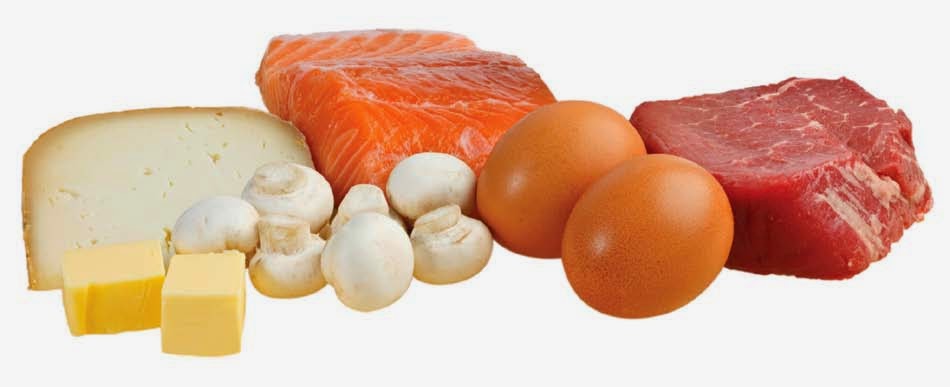 We all probably know that vitamin D can be obtained from sunlight, but what are the benefits of Vitamin D to the body and what other sources can it be derived from? The term "vitamin D" refers to several different forms of this vitamin. Two forms are important in humans: vitamin D2, which is made by plants, and vitamin D3, which is made by human skin when exposed to sunlight. Foods may be fortified with vitamin D2 or D3. The major role of vitamin D is to maintain normal blood levels of calcium and phosphorus. Vitamin D helps the body absorb calcium, which forms and maintains strong bones. It is used alone or together with calcium to improve bone health and decrease fractures. Vitamin D may also protect against osteoporosis, high blood pressure, cancer, and other diseases.
We all probably know that vitamin D can be obtained from sunlight, but what are the benefits of Vitamin D to the body and what other sources can it be derived from? The term "vitamin D" refers to several different forms of this vitamin. Two forms are important in humans: vitamin D2, which is made by plants, and vitamin D3, which is made by human skin when exposed to sunlight. Foods may be fortified with vitamin D2 or D3. The major role of vitamin D is to maintain normal blood levels of calcium and phosphorus. Vitamin D helps the body absorb calcium, which forms and maintains strong bones. It is used alone or together with calcium to improve bone health and decrease fractures. Vitamin D may also protect against osteoporosis, high blood pressure, cancer, and other diseases.
Vitamin D is found in foods such as fish, eggs, fortified milk, and cod liver oil. Cod liver oil is said to contain the largest source of vitamin D. Fresh fruits and vegetables are also good sources of vitamin D. The sun also adds to the body's daily production of vitamin D. It is recommended that lighter skin individuals receive 10 to 15 minutes of sunlight daily, while darker individuals, on the other hand, should receive 25 to 30 minutes daily. Do bear in mind that there are risks when over exposed to sunlight.
Vitamin D deficiency occurs when the body does not have enough vitamin D to properly absorb the required levels of calcium and phosphate. Mild to moderate vitamin D deficiency can lead to bone pain and weakening of the bones (osteoporosis). This could make you more likely to fracture a bone if you had a fall. Severe levels of vitamin D deficiency in children could lead to rickets, which is a softening or weakening of the bones. Severe Vitamin D deficiency in adults could lead to osteomalacia, which causes weak bones and muscles. Research shows that people who may be at a high risk for vitamin D deficiency include those who are elderly or obese, those with limited sun exposure, and babies who are exclusively breastfed.
A balanced diet + minimal exposure to sunlight should give you a good dose of vitamin D. Supplements can be included where there is little to no sunshine (winter season) or where you are unable to have a balanced meal. An excess of vitamnin D over a long period of time can however cause more calcium to be absorbed than can be excreted. The excess calcium can be deposited in and damage the kidneys. Excessive intake of vitamin D can also encourage calcium to be removed from bones, which can soften and weaken them. If taking vitamin D supplements, experts advise that you do not take more than 25 micrograms (0.025mg) a day, as it could be harmful. However, taking less than this is unlikely to cause any harm.
Vitamin D deficiency occurs when the body does not have enough vitamin D to properly absorb the required levels of calcium and phosphate. Mild to moderate vitamin D deficiency can lead to bone pain and weakening of the bones (osteoporosis). This could make you more likely to fracture a bone if you had a fall. Severe levels of vitamin D deficiency in children could lead to rickets, which is a softening or weakening of the bones. Severe Vitamin D deficiency in adults could lead to osteomalacia, which causes weak bones and muscles. Research shows that people who may be at a high risk for vitamin D deficiency include those who are elderly or obese, those with limited sun exposure, and babies who are exclusively breastfed.
A balanced diet + minimal exposure to sunlight should give you a good dose of vitamin D. Supplements can be included where there is little to no sunshine (winter season) or where you are unable to have a balanced meal. An excess of vitamnin D over a long period of time can however cause more calcium to be absorbed than can be excreted. The excess calcium can be deposited in and damage the kidneys. Excessive intake of vitamin D can also encourage calcium to be removed from bones, which can soften and weaken them. If taking vitamin D supplements, experts advise that you do not take more than 25 micrograms (0.025mg) a day, as it could be harmful. However, taking less than this is unlikely to cause any harm.
Comments
Post a Comment